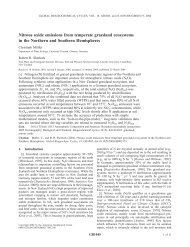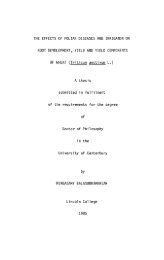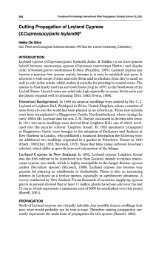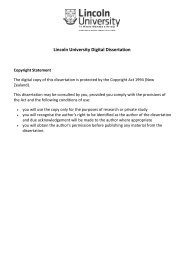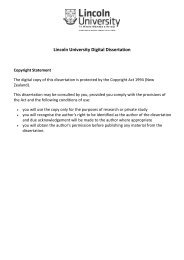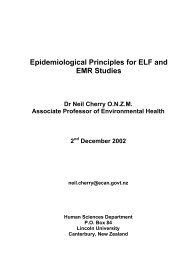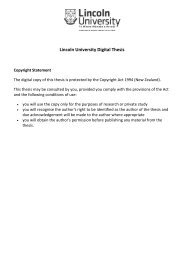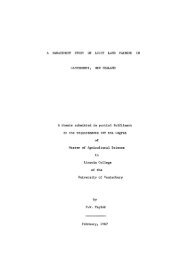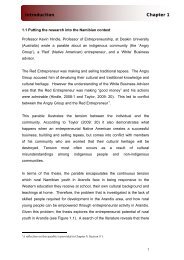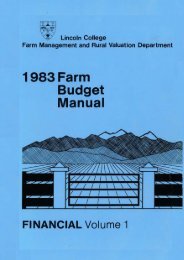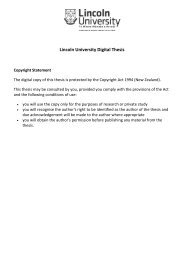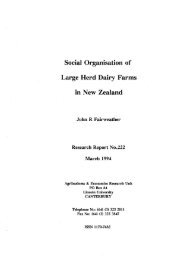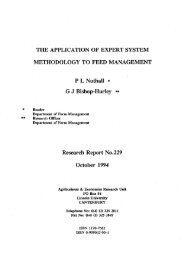Lincoln University Digital Dissertation - Lincoln University Research ...
Lincoln University Digital Dissertation - Lincoln University Research ...
Lincoln University Digital Dissertation - Lincoln University Research ...
You also want an ePaper? Increase the reach of your titles
YUMPU automatically turns print PDFs into web optimized ePapers that Google loves.
linking you back to Papatuanuku – that is the parent you know, that is the<br />
mother. The hinengaro is that it makes you think, you know you don’t go out<br />
without thinking about the climate, the weather, the time of the year, you have<br />
got to look at that element of thinking. And the whanaungatanga is the fact<br />
that you bring other people along side you to achieve the end - you know you<br />
don’t do it alone. So it contributes to all four elements and it has too… That’s<br />
not a unique thing for Maori; it’s just that other cultures express that in other<br />
ways. But for Maori we express it as te taha tinana, te taha wairua, te taha<br />
whanaunga, te taha hinengaro, and some people add te taha mauri. But te<br />
taha mauri is that complete set, so when it all comes together the mauri is just<br />
so. That’s the cultural element.” (Grower 1)<br />
Tikanga is a noun which loosely refers to the customs and habits of the<br />
people, but has the connotations of the reasoning behind these actions. If it is<br />
the whakapapa, and other concepts which built the values, beliefs and actions<br />
of Maori, then it is also these things which create the tikanga – customs and<br />
habits. All the daily activities undertaken by Maori as part of customary<br />
lifestyle including the various management methods associated with crop<br />
production are based on tikanga. They are practiced in accordance with the<br />
beliefs and values of the people, built over centuries – modern society has<br />
incorporated the tikanga of Pakeha with that of Maori. This is an important<br />
consideration because all growers identified the potential challenges<br />
surrounding the evolution of methods and management concerning<br />
contemporary taewa cultivation. The general opinion seems to support the<br />
growth of Maori tikanga, incorporating and engaging potentially useful<br />
technologies and practices of today. The growers interviewed do not see such<br />
adaptation as detrimental to traditional Maori tikanga, but rather see<br />
knowledge and practice as dynamic factors reflecting the particular<br />
opportunities and constraints of an environment.<br />
“Even the old people responded to their environment. If something was<br />
happening with the fisheries that was affecting how things were they re-<br />
worked how things were, they responded… so it’s no different to that [now] it’s<br />
just that the impacts and the effects have been a lot more and a lot stronger<br />
43



